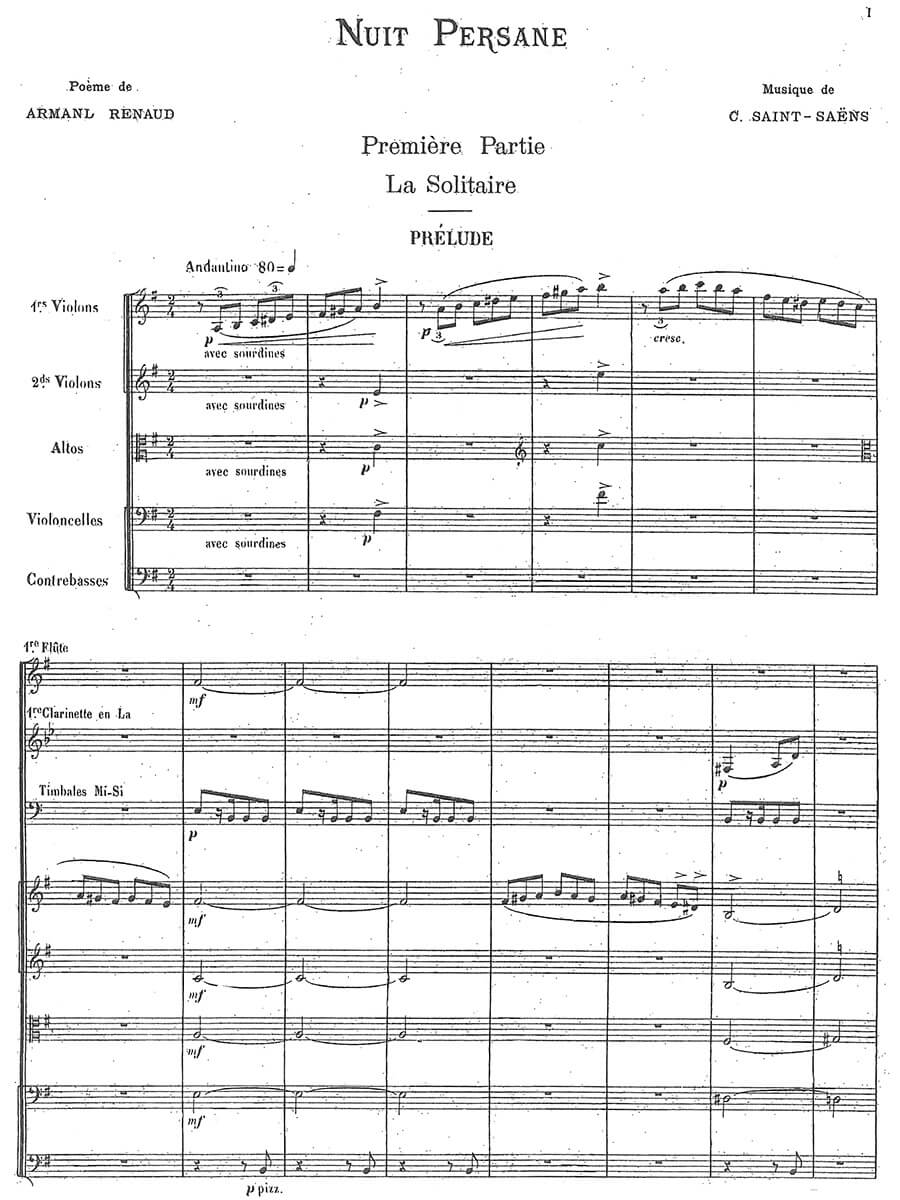Nuit persane op.26bis for 2 voices, mixed chorus and orchestra
Saint-Saëns, Camille
26,00 €
Preface
Charles-Camille Saint-Saëns – Nuit persane op. 26bis
for 2 voices, mixed chorus and orchestra
(b. Paris, 9. October 1835 — d. Algier, 16 December 1921)
Preface
In 1870, the French poet Armand Renaud wrote a set of twelve poems under the name Les Nuits persanes. In the preface to the collection, Renaud notes his interest in the regions of the East and their respective literature and culture. Renaud states that, out of all of these regions, it is Persia that especially has the most original and complete poetry. He writes, throughout history, the poetry of Persia blossoms with civilization and cannot compare to the rest of the Orient.1 Indeed, the Orient became a created space of the European imagination rich with what Edward Said recognized as “romance, exotic beings, haunting memories and landscapes, [and] remarkable experiences.”2 As Britain and France, as well as other European nations, began a race to grab land in Africa and Asia, increased travel to these regions whetted appetites for stories and souvenirs from these continents.
The poetry of Les Nuits persanes incorporates stock images and objects of the imagined Orient, including a eunuch’s turban, the scent of myrrh, palm trees, and a boat ride along the Nile.3 The title, Persian Nights, is also an Orientalist trope, possibly influenced by the popularity of the story collection, 1001 Nights, that was translated into French in 1717 by Antoine Galland, and again by Joseph Charles Mardrus in 1904, and contains many stories believed to have originated in Persia. The story collection became a popular subject for music and art, both Nikolai Rimsky-Korsakov and Maurice Ravel used the frame story, Sheherazade, in their respective works of the same title. This region was also significant to France politically. Napoléon and Fath Ali Shah Qajar, second shah to Iran, held a short agreement from 1807-1809, known as the Franco-Persian Alliance, hoping to work against the accord between Russia and Britain. An agreement with Persia also signified a strategic step toward India, a region Napoléon had been eyeing to claim. Decades later, Napoléon III, nephew to Bonaparte, continued France’s involvement in Iranian politics, brokering the Treaty of Paris, ending the Anglo-Persian War of 1856-1857. …
Read full preface > HERE
Score Data
| Edition | Repertoire Explorer |
|---|---|
| Genre | Chor/Stimme & Orchestra |
| Format | 210 x 297 mm |
| Druck | Reprint |
| Seiten | 100 |
